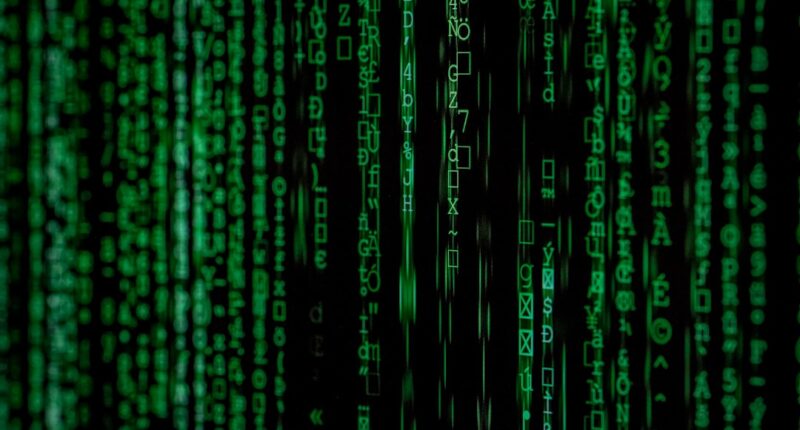Non-fungible tokens (NFTs) are unique digital assets that represent ownership or authenticity of specific digital items or content. Unlike fungible cryptocurrencies, each NFT is distinct and cannot be exchanged on a like-for-like basis. NFTs are typically created using blockchain technology, which provides a secure and transparent record of ownership on a decentralized public ledger.
When creators mint NFTs, they generate digital certificates of ownership for their work, which are stored on the blockchain. This process ensures verifiable ownership and transfer records. NFTs can be bought, sold, and traded on various online marketplaces, with transactions recorded on the blockchain for transparency and security.
The value of an NFT is influenced by factors such as rarity, demand, and perceived value of the underlying digital asset. NFTs have introduced new opportunities for creators to monetize their digital works and connect with a global audience of collectors and enthusiasts. However, they have also raised questions about ownership and copyright in the digital realm.
Owning an NFT does not necessarily confer copyright or intellectual property rights to the buyer. It is essential for both creators and buyers to understand the distinction between NFT ownership and copyright ownership of the underlying work. As the NFT market continues to develop, it is crucial for participants to remain informed about the legal and ethical implications of NFT ownership and transactions.
Creating Your Own NFT: Step-by-Step Guide
Choosing Your Digital Asset
The first step in creating your own NFT is to select the digital asset you want to tokenize. This could be an artwork, a piece of music, a video clip, or any other digital content that you have created.
Selecting a Blockchain Platform and Digital Wallet
Once you have selected your digital asset, you will need to choose a blockchain platform to mint your NFT. Ethereum is currently the most popular choice, but there are other options such as Binance Smart Chain and Flow that also support NFT creation. After selecting a blockchain platform, you will need to create a digital wallet to store your NFTs and cryptocurrency. There are various types of digital wallets available, including web-based wallets, mobile wallets, and hardware wallets.
Minting and Listing Your NFT
With your digital wallet set up, you can proceed to mint your NFT by uploading your digital asset to a marketplace or platform that supports NFT creation, such as OpenSea, Rarible, or Mintable. You will then be prompted to fill in details about your NFT, such as its name, description, and any additional attributes or properties. After completing the minting process, your NFT will be created and recorded on the blockchain, making it publicly accessible and verifiable. You can then list your NFT for sale on various marketplaces and share it with potential buyers.
Selling and Transferring Ownership
When someone purchases your NFT, the ownership will be transferred to their digital wallet, and you will receive the agreed-upon payment in cryptocurrency. Creating and selling NFTs can be an exciting way to showcase your digital creations and connect with a global audience of collectors and enthusiasts.
Selling Your NFT: Tips for Success

Selling your NFT can be a rewarding experience, but it’s important to approach the process strategically to maximize your chances of success. One key tip for selling your NFT is to carefully consider the pricing strategy for your digital asset. Factors such as the uniqueness, demand, and perceived value of your NFT can influence its price.
Researching similar NFTs in the market can help you gauge an appropriate price range for your own creation. It’s also important to consider the current trends and demand in the NFT space when setting the price for your digital asset. Another tip for selling your NFT is to leverage social media and online communities to promote your work.
Building a strong online presence and engaging with potential buyers can help increase visibility and interest in your NFT. Sharing behind-the-scenes content, progress updates, and sneak peeks of upcoming releases can help build anticipation and excitement around your digital creations. Engaging with the NFT community through platforms like Twitter, Discord, and Clubhouse can also help you connect with potential buyers and collectors.
Additionally, offering perks or incentives to buyers can make your NFT more attractive and increase its perceived value. For example, you could offer limited edition physical merchandise, exclusive access to future releases, or special experiences to accompany the purchase of your NFT. Creating a sense of exclusivity and value around your digital asset can make it more appealing to potential buyers.
By implementing these tips and strategies, you can increase your chances of successfully selling your NFT and building a loyal following of collectors and supporters.
NFT Artists: How to Get Started and Stand Out in the Market
| Metrics | Description |
|---|---|
| Artistic Style | Define your unique artistic style to stand out in the NFT market. |
| Market Research | Conduct research on current NFT trends and popular artists to understand the market. |
| Blockchain Knowledge | Understand the basics of blockchain technology and how it relates to NFTs. |
| Community Engagement | Engage with the NFT community through social media, forums, and events. |
| Platform Selection | Choose the right NFT marketplace or platform to showcase and sell your art. |
For artists looking to enter the world of NFTs, there are several key steps to consider in order to get started and stand out in the market. The first step is to create high-quality and unique digital artwork that will resonate with collectors and enthusiasts in the NFT space. Whether it’s illustrations, animations, 3D models, or generative art, focusing on creating original and visually striking content can help set you apart from other artists in the market.
Experimenting with different styles and techniques can also help you find your niche and develop a recognizable artistic identity. Once you have created your digital artwork, it’s important to research and choose the right platform or marketplace to showcase and sell your NFTs. Platforms like Foundation, SuperRare, and KnownOrigin cater to artists and creators looking to mint and sell their digital creations as NFTs.
Each platform has its own community and audience, so it’s important to consider which one aligns best with your artistic style and goals. Building a strong presence on these platforms through consistent uploads, engaging with collectors, and participating in community events can help increase visibility and recognition for your work. Another important aspect for NFT artists is to engage with the community and build a network of supporters and collectors.
Participating in online forums, social media groups, and virtual events can help you connect with like-minded individuals and potential buyers. Building relationships with collectors and enthusiasts can lead to long-term support for your artistic endeavors in the NFT space. By focusing on creating compelling artwork, choosing the right platform, and engaging with the community, artists can position themselves for success in the competitive world of NFTs.
NFT Jobs: Exploring Career Opportunities in the NFT Industry
The rise of NFTs has created new career opportunities across various sectors within the industry. From artists and developers to marketers and legal experts, there are diverse roles available for individuals looking to pursue a career in the NFT space. One prominent career opportunity in the NFT industry is that of an NFT curator or art director.
Curators play a crucial role in identifying and promoting high-quality digital artwork within the NFT space. They work closely with artists to curate collections, organize exhibitions, and engage with collectors to promote their work. Another career opportunity within the NFT industry is that of an NFT developer or blockchain engineer.
These professionals play a key role in developing and maintaining the technical infrastructure that supports NFT creation, trading, and storage. With expertise in blockchain technology and smart contracts, developers contribute to building secure and user-friendly platforms for minting, selling, and trading NFTs. Additionally, roles such as marketing manager, community manager, and legal counsel are also essential for supporting the growth and sustainability of the NFT industry.
As the NFT space continues to evolve, there will be increasing demand for professionals with expertise in areas such as digital art curation, blockchain development, marketing strategy, community management, and legal compliance. Individuals looking to pursue a career in the NFT industry can explore these diverse opportunities based on their skills, interests, and professional background. By staying informed about industry trends and developments, individuals can position themselves for success in this dynamic and rapidly growing sector.
NFT News: Staying Updated on Trends and Developments in the NFT Space

Industry-Specific Publications and Newsletters
One way to stay informed about NFT news is by following industry-specific publications, blogs, and newsletters that cover topics related to digital art, blockchain technology, market trends, legal developments, and notable sales within the NFT space. Platforms like CoinDesk, Decrypt, The Defiant, and The Block provide comprehensive coverage of news and analysis related to cryptocurrencies and blockchain technology.
Social Media and Online Communities
Another valuable source of information for staying updated on NFT news is through social media platforms such as Twitter, Discord, Clubhouse, and Reddit. Following industry experts, artists, collectors, and influencers within the NFT community can provide real-time updates on new releases, market trends, upcoming events, and discussions about relevant topics within the industry. Engaging with these platforms can also help individuals connect with like-minded individuals who share similar interests in digital art and blockchain technology.
Virtual Events and Conferences
Attending virtual events such as conferences, webinars, workshops, and panel discussions focused on NFTs can also provide valuable insights into current trends and developments within the industry. These events often feature thought leaders, industry experts, artists, collectors, and investors who share their perspectives on various aspects of the NFT space. By actively participating in these events, individuals can gain valuable knowledge about emerging trends, best practices for creators and collectors, legal considerations for NFT transactions, and future projections for the industry.
NFT Legalities: Understanding Copyright and Ownership Issues for NFT Creators
Navigating the legalities of copyright and ownership is essential for creators entering the world of NFTs. When creating an NFT based on existing copyrighted material such as artwork or music, it’s important for creators to ensure that they have obtained the necessary rights or licenses from the original copyright holders before minting their digital asset as an NFT. Failure to obtain proper permissions could result in legal disputes or infringement claims from copyright holders.
Creators should also be aware of potential issues related to intellectual property rights when minting their own original content as an NFT. While owning an NFT may confer certain ownership rights to the digital asset itself, it does not necessarily grant copyright or intellectual property rights to the buyer. Creators should clearly outline any usage rights or restrictions associated with their NFTs to avoid misunderstandings or disputes with buyers regarding the scope of ownership.
Additionally, creators should consider consulting legal professionals with expertise in intellectual property law or blockchain technology to ensure that their rights are protected when entering into transactions involving NFTs. Legal experts can provide guidance on drafting licensing agreements for digital artwork or music sold as NFTs, navigating copyright issues related to derivative works or collaborations within the NFT space, and understanding potential liabilities associated with ownership claims or disputes. By staying informed about copyright laws, intellectual property rights, licensing agreements, and legal considerations specific to NFT transactions, creators can protect their interests while navigating the evolving landscape of digital ownership in the blockchain era.
If you’re interested in learning more about how to make and sell NFTs, you should check out this article on NFT-Jobs. This website offers valuable insights and resources for those looking to enter the world of non-fungible tokens. Whether you’re an artist, a collector, or a digital creator, NFT-Jobs has the information you need to get started in this exciting and rapidly growing industry.
FAQs
What is an NFT?
An NFT, or non-fungible token, is a digital asset that represents ownership or proof of authenticity of a unique item or piece of content, such as artwork, music, videos, or collectibles, using blockchain technology.
How do you make an NFT?
To make an NFT, you can use a platform that supports NFT creation, such as OpenSea, Rarible, or Mintable. You will need to create a digital wallet, upload your digital content, and follow the platform’s instructions to mint the NFT, which involves creating a unique token on the blockchain.
How do you sell an NFT?
To sell an NFT, you can list it on an NFT marketplace such as OpenSea, Foundation, or Nifty Gateway. You will need to connect your digital wallet, set a price for your NFT, and follow the platform’s instructions to list it for sale. Once a buyer purchases your NFT, the ownership transfer is recorded on the blockchain.
What can be turned into an NFT?
Almost any digital content can be turned into an NFT, including artwork, music, videos, virtual real estate, virtual goods, and even tweets or memes. The key is that the content is unique and can be tokenized to represent ownership or authenticity.
What are the benefits of selling NFTs?
Selling NFTs can provide creators with a new way to monetize their digital content, reach a global audience, and receive royalties from secondary sales. It also allows collectors to own and trade unique digital assets in a secure and transparent manner using blockchain technology.




